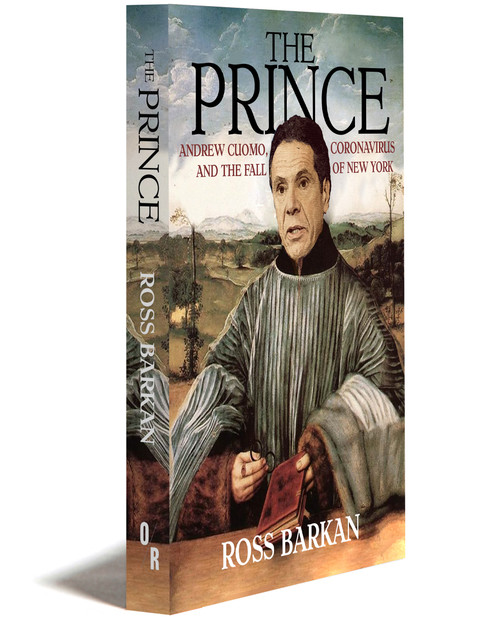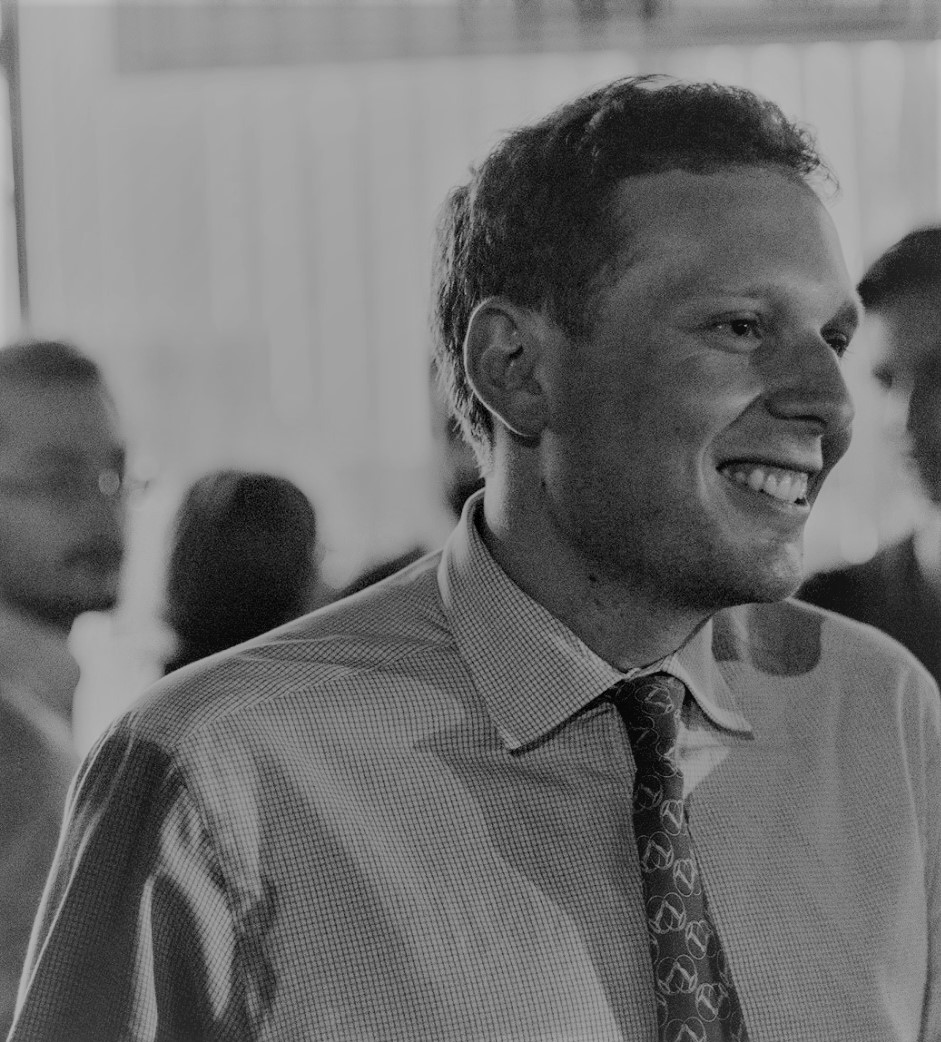The Prince
“One of the sharpest state policy minds I know.”
— Alexandria Ocasio-Cortez“The most astute observer of… Cuomo and his failures since the very beginning.”
— Krystal Ball“A swift and devastating read. Barkan writes fluently, marshals facts persuasively, and foregrounds the power-obsessed Cuomo’s contempt for the powerless.”
— The Nation“Assiduous…[Barkan] commands a deep expertise... and he’s already written an entire book about a truth that many in the press are only now admitting.”
— Jacobinabout the bookabout
Governor Andrew Cuomo, scion of Mario Cuomo, is today as famous as his father, also a governor of New York state for three terms. Like Robert Moses, he is one of New York’s great and infamous power brokers. Though initially lavishly celebrated for his handling of the coronavirus pandemic, not least by himself, it is now apparent that Cuomo’s management of the crisis was a juddering and fatal failure. Thousands died because, ignoring the advice of experts, he shut down too late and returned still sick patients to nursing homes. The crisis was intensified by his previous commitment to austerity, which saw the slashing of funding to hospitals.
A vital riposte to Cuomo’s recently published book about the pandemic, now increasingly derided as self-serving and deceitful, The Prince is a searing indictment of Cuomo’s handling of coronavirus and his time overall in the highest office of the state.
“A writer with real literary flair. Like I.F. Stone, Barkan works independently with a left point of view, but it's his shoe leather, his working the phones and hitting the street, that's invaluable because, sadly, it's so scarce.”
—Christian Lorentzen
“A damning political polemic of a controversial administration mired in failed leadership... In lucid, declarative prose... [Barkan] convincingly debunks Cuomo’s ‘false narrative of triumph’ and, in exacting detail, reveals the corrupt side of present-day New York government.”
—Kirkus Reviews
“In this excoriating takedown, [Barkan] argues that praising New York governor Andrew Cuomo’s handling of the Covid-19 pandemic is akin to commending Nero for fiddling while Rome burned… Enriched by the author’s deep knowledge of New York politics and sharp parsing of facts... this exposé delivers a knockout punch.”
—Publishers Weekly
About The Author / Editor
Preview
On a warm day just before the start of summer, Governor Andrew Cuomo addressed the people of New York State and the nation for the 111th consecutive day. He was alone this time, not confining himself to a room with journalists or lecturing in front of PowerPoint slides. There were no celebrities to flank him. In a pale tie and dark suit, a photograph of his three daughters framed just to his right, Cuomo spoke with the emotion of a man who had witnessed catastrophe but conquered it completely.
“Over the past three months we have done the impossible,” Cuomo said. “We are controlling the virus better than any state in the country, any nation in the globe. I am so incredibly proud of what we all did together and as a community. We reopened the economy and we saved lives—because it was never a choice between one or the other. It was always right to do both.”
The governor, speaking behind his desk on live television, did not take questions. He didn’t have to. Among most of those watching—the operatives, the aides, the reporters, the enormous, reverential public—there was the feeling of a job well done, a crisis now in retreat. On that Friday, with the temperature nearing 90 degrees in the state capital of Albany, the number of people hospitalized was 1,284, compared to the more than 18,000 at the peak of the outbreak. “I thought about it every day as climbing a mountain. The Mount Everest of social challenges,” Cuomo said.
The address was relatively brief, clocking in at about nine minutes and fifteen seconds, and it closed with a somber yet celebratory video slideshow overlaid with narration from the governor himself. Images flashed across the screen: Cuomo, sepia-toned, with his top aide, Melissa DeRosa. Cuomo, huddled with tough men in camouflage. A whiteboard scrawled with facts about the virus. A boy removing one mask to display another mask, a message in marker combining on each:We Are All NY Tough.
Men and women appeared in masks. Others cheered from rooftops and balconies. “We have the lowest rate of transmission,” came Cuomo’s voice, the string music rising. “The phased reopening is working. Stay the course.”
in the media
The Prince
“One of the sharpest state policy minds I know.”
— Alexandria Ocasio-Cortez“The most astute observer of… Cuomo and his failures since the very beginning.”
— Krystal Ball“A swift and devastating read. Barkan writes fluently, marshals facts persuasively, and foregrounds the power-obsessed Cuomo’s contempt for the powerless.”
— The Nation“Assiduous…[Barkan] commands a deep expertise... and he’s already written an entire book about a truth that many in the press are only now admitting.”
— Jacobinabout the bookabout
Governor Andrew Cuomo, scion of Mario Cuomo, is today as famous as his father, also a governor of New York state for three terms. Like Robert Moses, he is one of New York’s great and infamous power brokers. Though initially lavishly celebrated for his handling of the coronavirus pandemic, not least by himself, it is now apparent that Cuomo’s management of the crisis was a juddering and fatal failure. Thousands died because, ignoring the advice of experts, he shut down too late and returned still sick patients to nursing homes. The crisis was intensified by his previous commitment to austerity, which saw the slashing of funding to hospitals.
A vital riposte to Cuomo’s recently published book about the pandemic, now increasingly derided as self-serving and deceitful, The Prince is a searing indictment of Cuomo’s handling of coronavirus and his time overall in the highest office of the state.
“A writer with real literary flair. Like I.F. Stone, Barkan works independently with a left point of view, but it's his shoe leather, his working the phones and hitting the street, that's invaluable because, sadly, it's so scarce.”
—Christian Lorentzen
“A damning political polemic of a controversial administration mired in failed leadership... In lucid, declarative prose... [Barkan] convincingly debunks Cuomo’s ‘false narrative of triumph’ and, in exacting detail, reveals the corrupt side of present-day New York government.”
—Kirkus Reviews
“In this excoriating takedown, [Barkan] argues that praising New York governor Andrew Cuomo’s handling of the Covid-19 pandemic is akin to commending Nero for fiddling while Rome burned… Enriched by the author’s deep knowledge of New York politics and sharp parsing of facts... this exposé delivers a knockout punch.”
—Publishers Weekly
About The Author / Editor
Preview
On a warm day just before the start of summer, Governor Andrew Cuomo addressed the people of New York State and the nation for the 111th consecutive day. He was alone this time, not confining himself to a room with journalists or lecturing in front of PowerPoint slides. There were no celebrities to flank him. In a pale tie and dark suit, a photograph of his three daughters framed just to his right, Cuomo spoke with the emotion of a man who had witnessed catastrophe but conquered it completely.
“Over the past three months we have done the impossible,” Cuomo said. “We are controlling the virus better than any state in the country, any nation in the globe. I am so incredibly proud of what we all did together and as a community. We reopened the economy and we saved lives—because it was never a choice between one or the other. It was always right to do both.”
The governor, speaking behind his desk on live television, did not take questions. He didn’t have to. Among most of those watching—the operatives, the aides, the reporters, the enormous, reverential public—there was the feeling of a job well done, a crisis now in retreat. On that Friday, with the temperature nearing 90 degrees in the state capital of Albany, the number of people hospitalized was 1,284, compared to the more than 18,000 at the peak of the outbreak. “I thought about it every day as climbing a mountain. The Mount Everest of social challenges,” Cuomo said.
The address was relatively brief, clocking in at about nine minutes and fifteen seconds, and it closed with a somber yet celebratory video slideshow overlaid with narration from the governor himself. Images flashed across the screen: Cuomo, sepia-toned, with his top aide, Melissa DeRosa. Cuomo, huddled with tough men in camouflage. A whiteboard scrawled with facts about the virus. A boy removing one mask to display another mask, a message in marker combining on each:We Are All NY Tough.
Men and women appeared in masks. Others cheered from rooftops and balconies. “We have the lowest rate of transmission,” came Cuomo’s voice, the string music rising. “The phased reopening is working. Stay the course.”






